Here are my favorite poems about getting over a breakup for him categorized:
- Short poems about breakup for him
- Breakup poems that will make you cry for him
- Poems about breaking up and moving on for him
- Goodbye breakup poems for him
So if you’re looking for poems about getting over a breakup for him, then you’re in the right place.
Let’s jump right in!
- 35 Unforgettable Poems About Ex Lovers for Him
- 35 Healing Poems About Letting Someone Go For Him
- 47 Liberating Poems About Ex Boyfriends
- 93 Unwavering Love Poems For Boyfriends
- 125 Striking Love Poems For Him

Daring Poems About Getting Over a Breakup for Him

Breakups, the bittersweet symphony of emotions that can leave us feeling shattered yet determined to rise above the chaos.
These heart-wrenching experiences have inspired countless poets to craft verses that encapsulate the rawness of the healing process.
From the depths of despair to the heights of newfound strength, these daring poems about getting over a breakup for him delve into the complexities of love lost and the resilience of the human spirit.
Brace yourself for a rollercoaster ride through the realms of vulnerability, empowerment, and self-discovery as these poems unravel the tangled threads of heartbreak and guide us towards a brighter horizon.
So, grab a cup of courage, settle into the comfort of your emotions, and embark on a poetic journey that will leave you inspired, entertained, and ready to conquer any heartbreak that comes your way.
Let’s get straight to it!
My #1 Favorite Poem About Getting Over a Breakup for Him
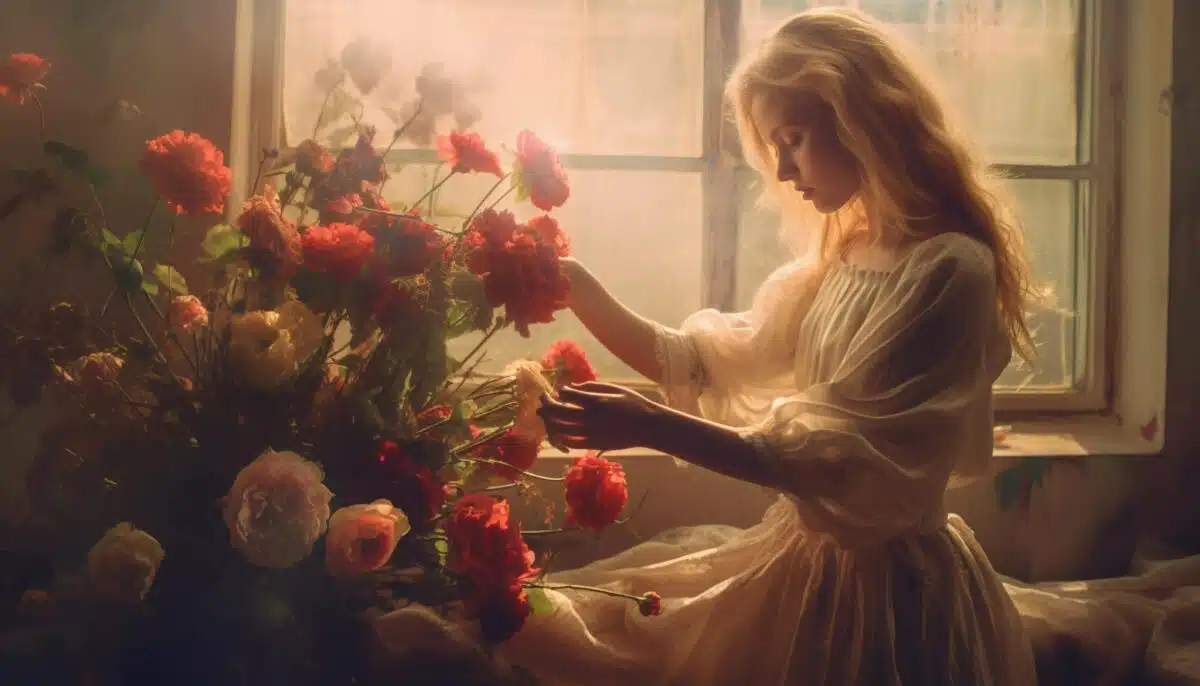
“We Outgrow Love Like Other Things” by Emily Dickinson
We outgrow love like other things
And put it in the drawer,
Till it an antique fashion shows
Like costumes grandsires wore.
Why Is “We Outgrow Love Like Other Things” My Favorite Poem

In “We Outgrow Love Like Other Things,” I love how Emily Dickinson beautifully captures the bittersweet essence of human emotions in just four short lines.
The poem delves into the universal experience of growing apart from love, just as we outgrow other aspects of our lives.
With her exquisite choice of words, she thoughtfully explores how relationships can evolve and change, reminding us that love is a dynamic force that doesn’t always remain constant.
Just like in Dickinson’s other poems, her sometimes bleak but distinct poetic style invites us to reflect on the transient nature of feelings.
I appreciate how she downplays the idea of love and relationships as something that can be outgrown like other things, which is a refreshing and consoling approach to getting over lost love.
Short Poems About Breakup for Him

Getting through a breakup can be an intense and emotional experience, one that many of us struggle to cope with.
These poems are short but filled with raw and delicate emotions that are meant to offer you solace and comfort as you navigate the journey of getting over someone after your breakup.
“Finis” by Waring Cuney
Now that our love has drifted
To a quiet close,
Leaving the empty ache
That always follows when beauty goes;
Now that you and I,
Who stood tip-toe on earth
To touch our fingers to the sky,
Have turned away
To allow our little love to die—
Go, dear, seek again the magic touch.
But if you are wise,
As I shall be wise,
You will not again
Love over much.
“Godspeed” by Dorothy Parker
Oh, seek, my love, your newer way;
I’ll not be left in sorrow.
So long as I have yesterday,
Go take your damned to-morrow!
“Lightning” by Witter Bynner
There is a solitude in seeing you,
Followed by your company when you are gone.
You are like heaven’s veils of lightning.
I cannot see till afterward
How beautiful you are.
There is a blindness in seeing you,
Followed by the sight of you when you are gone.
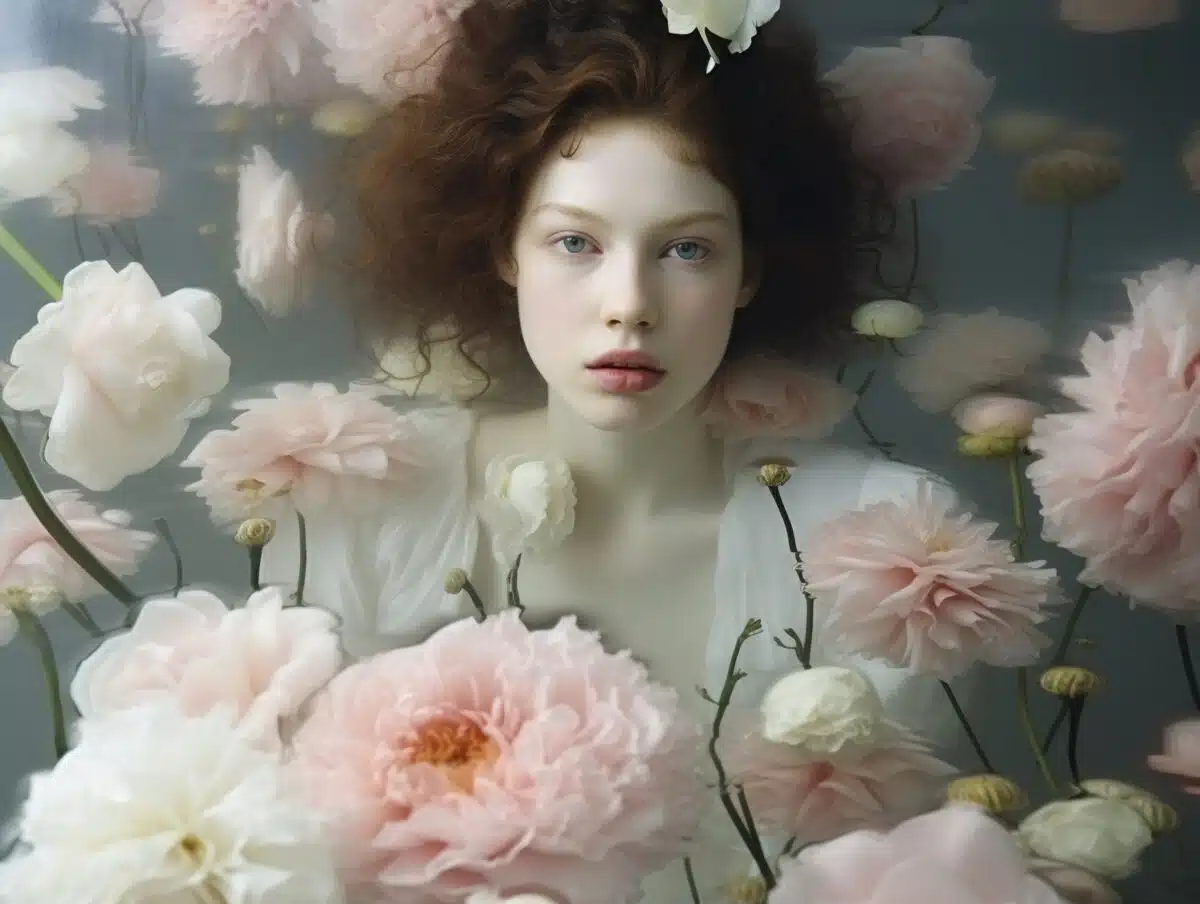
“The Sea of Glass” by Ezra Pound
I looked and saw a sea
roofed over with rainbows,
In the midst of each
two lovers met and departed;
Then the sky was full of faces
with gold glories behind them.
“When Love is Over – Song of Khan Zada” by Laurence Hope (Adela Florence Cory Nicolson)
Only in August my heart was aflame,
Catching the scent of your Wind-stirred hair,
Now, though you spread it to soften my sleep
Through the night, I should hardly care.
Only last August I drank that water
Because it had chanced to cool your hands;
When love is over, how little of love
Even the lover understands!
“Separation” by Walter Savage Landor
There is a mountain and a wood between us,
Where the lone shepherd and late bird have seen us
Morning and noon and eventide repass.
Between us now the mountain and the wood
Seem standing darker than last year they stood,
And say we must not cross, alas! alas!
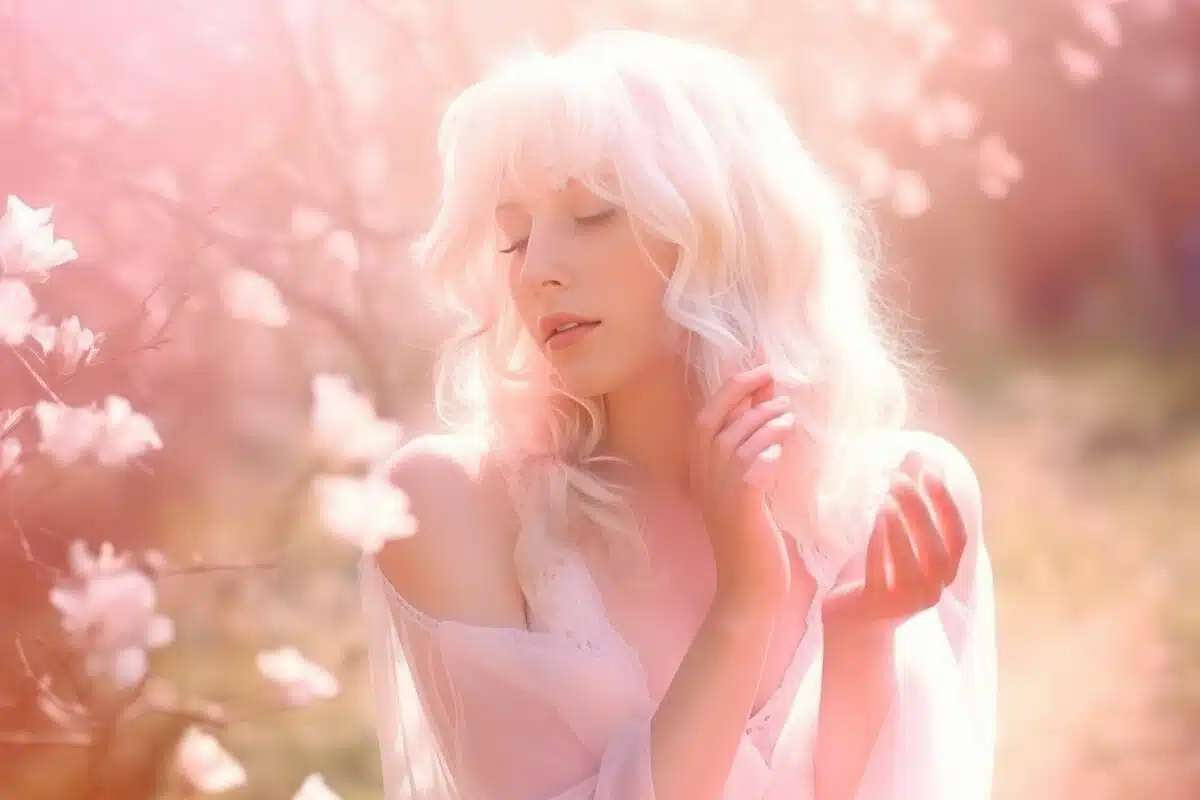
“Light” by Francis W. Bourdillon
The night has a thousand eyes,
And the day but one,
Yet the light of the bright world dies
With the dying sun.
The mind has a thousand eyes,
And the heart but one,
Yet the light of a whole life dies
When love is done.
“Ebb” by Edna St. Vincent Millay
I know what my heart is like
Since your love died:
It is like a hollow ledge
Holding a little pool
Left there by the tide,
A little tepid pool,
Drying inward from the edge.
“A Farewell” by Harriet Monroe
Good-By!—no, do not grieve that it is over,
The perfect hour;
That the winged joy, sweet honey-loving rover,
Flits from the flower.
Grieve not—it is the law. Love will be flying—
Oh, love and all.
Glad was the living—blessed be the dying!
Let the leaves fall.

“The Lover Left by His Love at Evening” by John Keats
The day is gone, and all its sweets are gone!
Sweet voice, sweet lips, soft hands, and softer breast,
Warm breath, light whisper, tender semitone,
Bright eyes, accomplished shape, and lang’rous waist!
Faded the flower and all its budded charms;
Faded the sight of beauty from my eyes;
Faded the shape of beauty from my arms;
Faded the voice, warmth, whiteness, paradise,—
Vanished unseasonably at shut of eve,
When the dusk holiday—or holinight—
Of fragrant-curtained love begins to weave
The woof of darkness thick, for hid delight;
But, as I ’ve read love’s missal through to-day,
He’ll let me sleep, seeing I fast and pray.
“Sonnet” by Rainer Maria Rilke
There’s not a fibre in my trembling frame
That does not vibrate when thy step draws near,
There’s not a pulse that throbs not when I hear
Thy voice, thy breathing, nay, thy very name.
When thou art with me, every sense seems dull,
And all I am, or know, or feel, is thee;
My soul grows faint, my veins run liquid flame,
And my bewildered spirit seems to swim
In eddying whirls of passion, dizzily.
When thou art gone, there creeps into my heart
A cold and bitter consciousness of pain:
The light, the warmth of life, with thee depart,
And I sit dreaming o’er and o’er again
Thy greeting clasp, thy parting look, and tone;
And suddenly I wake—and am alone.
“I Shall Forget” by Laurence Hope
Although my life, which thou hast scarred and shaken,
Retains awhile some influence of thee,
As shells, by faithless waves long since forsaken,
Still murmur with the music of the Sea,
I shall forget. Not thine the haunting beauty,
Which, once beheld, for ever holds the heart,
Or, if resigned from stress of Fate or Duty,
Takes part of life away:—the dearer part.
I gave thee love; thou gavest but Desire.
Ah, the delusion of that summer night!
Thy soul vibrated at the rate of Fire;
Mine, with the rhythm of the waves of Light.
It is my love for thee that I regret,
Not thee, thyself, and hence,—I shall forget!

“Departure” by Anna Akhmatova
Although this land is not my own,
I will remember its inland sea
and the waters that are so cold
the sand as white
as old bones, the pine trees
strangely red where the sun comes down.
I cannot say if it is our love,
or the day, that is ending.
“Love, What Is Love?” by Robert Louis Stevenson
Love—what is love? A great and aching heart;
Wrung hands; and silence; and a long despair.
Life—what is life? Upon a moorland bare
To see love coming and see love depart.
“Tears” from Lyric of Korea (E. Powys Mathers, Translator)
How can a heart play any more with life,
After it has found a woman and known tears?
In vain I shut my windows against the moonlight;
I have estranged sleep.
The flower of her face is growing in the shadow
Among warm and rustling leaves….
I see the sunlight on her house,
I see her curtains of vermilion silk….
Here is the almond-coloured dawn;
And there is dew on the petals of my night flower.

“The End Of All” by Madison Julius Cawein
I do not love you now,
O narrow heart, that had no heights but pride!
You, whom mine fed; to whom yours still denied
Food when mine hungered; and of which love died—
I do not love you now.
I do not love you now,
O shallow soul, with depths but to deceive!
You, whom mine watered; to whom yours did give
No drop to drink to help my love to live—
I do not love you now.
I do not love you now!
But did I love you in the old, old way,
And knew you loved me—’though the words should slay
Me and your love forever, I would say,
“I do not love you now!
I do not love you now!”
“Remember” by Christina G. Rossetti
Remember me when I am gone away,
Gone far away into the silent land;
When you can no more hold me by the hand,
Nor I half turn to go yet turning stay.
Remember me when no more day by day
You tell me of our future that you planned:
Only remember me; you understand
It will be late to counsel then or pray.
Yet if you should forget me for a while
And afterwards remember, do not grieve:
For if the darkness and corruption leave
A vestige of the thoughts that once I had,
Better by far you should forget and smile
Than that you should remember and be sad.
“One Who Is Dead” by Dora Sigerson Shorter
Never again, my darling, never again,
Till the gates of God are open for me to pass,
May we join our parted hands that loosed their hold,
Ere Death’s cold fingers closed on thine. Alas!
Feeling palm from palm was slipping in fingers’ hold,
Had you but spoken or I shed a tear,
This had not been, but now you have forgot,
And I remember only I held you dear.

“Here Is A Wound” by Edna St. Vincent Millay
Here is a wound that never will heal, I know,
Being wrought not of a dearness and a death,
But of a love turned ashes and the breath
Gone out of beauty; never again will grow
The grass on that scarred acre, though I sow
Young seed there yearly and the sky bequeath
Its friendly weathers down, far underneath
Shall be such bitterness of an old woe.
That April should be shattered by a gust,
That August should be levelled by a rain,
I can endure, and that the lifted dust
Of man should settle to the earth again;
But that a dream can die, will be a thrust
Between my ribs forever of hot pain.
“The Garden” by Sara Teasdale
My heart is a garden tired with autumn,
Heaped with bending asters and dahlias heavy and dark,
In the hazy sunshine, the garden remembers April,
The drench of rains and a snow-drop quick and clear as a spark;
Daffodils blowing in the cold wind of morning,
And golden tulips, goblets holding the rain—
The garden will be hushed with snow, forgotten soon, forgotten—
After the stillness, will spring come again?
“Morning Song” by Sara Teasdale
A diamond of a morning
Waked me an hour too soon;
Dawn had taken in the stars
And left the faint white moon.
O white moon, you are lonely,
It is the same with me,
But we have the world to roam over,
Only the lonely are free.

“The Falling Leaves” by W. B. Yeats
Autumn is over the long leaves that love us,
And over the mice in the barley sheaves;
Yellow the leaves of the rowan above us,
And yellow the wet wild-strawberry leaves.
The hour of the waning of love has beset us,
And weary and worn are our sad souls now;
Let us part, ere the season of passion forget us,
With a kiss and a tear on thy drooping brow.
“The Death Of Love” by Madison Julius Cawein
So Love is dead, the Love we knew of old!
And in the sorrow of our hearts’ hushed halls
A lute lies broken and a flower falls;
Love’s house stands empty and his hearth lies cold.
Lone in dim places, where sweet vows were told,
In walks grown desolate, by ruined walls
Beauty decays; and on their pedestals
Dreams crumble and th’ immortal gods are mold.
Music is slain or sleeps; one voice alone,
One voice awakes, and like a wandering ghost
Haunts all the echoing chambers of the Past –
The voice of Memory, that stills to stone
The soul that hears; the mind, that, utterly lost,
Before its beautiful presence stands aghast.
Breakup Poems That Will Make You Cry for Him

Love has a beautiful way of touching the deepest parts of our souls, leaving an indelible mark even when relationships come to an end.
Get ready to shed a tear or two as we explore the raw emotions and heart-wrenching moments in these heart-tugging breakup poems.
“You That Were” by John Frederick Freeman
You that were
Half my life ere life was mine;
You that on my shape the sign
Set of yours;
You that my young lips did kiss
When your kiss summed up my bliss….
Ah, once more
You to kiss were all my bliss!
You whom I
Could forget–strange, could forget
Even for days (ah, now the fret
Of my grief!);
You who loved me though forgot;
Welcomed still, reproaching not….
Ah, that now
That forgetting were forgot!
You that now
On my shoulder as I go
Put your hand that wounds me so;
You that brush
Yet my lips with that one last
Kiss that bitters all things past….
How shall I
Yet endure that kiss the last?
You that are
Where the feet of my blind grief
Find you not, nor find relief;
You that are
Where my thought flying after you
Broken falls and flies anew,
Now you’re gone
My love accusing aches for you.
“Fare The Well, Love” by George Pope Morris
Fare thee well, love!—We must sever!
Nor for years, love; but for ever!
We must meet no more—or only
Meet as strangers—sad and lonely.
Fare thee well!
Fare thee well, love!—How I languish
For the cause of all my anguish!
None have ever met and parted
So forlorn and broken-hearted.
Fare thee well!
Fare thee well, love—Till I perish
All my truth for thee I’ll cherish;
And, when thou my requiem hearest,
Know till death I loved thee, dearest.
Fare thee well!
“Parting” by Henry Dryerre
Tears in thine eyes, my love,
Sighs in the air,
Tender good-byes, my love,
Hearts of despair!
From thee I go, my love,
Ne’er to return—
Thinking forego, my love,
While the hours burn!
Here, at thy feet, my love,
Sigh I adieu,
Never to meet, my love,
Tender and true!
Kiss me, my life, my love,
Let thine arms twine—
To- morrow a wife, my love,
Yet ever mine!

“When Love Is Lost” by Ella Wheeler Wilcox
When love is lost, the day sets towards the night,
Albeit the morning sun may still be bright,
And not one cloud-ship sails across the sky.
Yet from the places where it used to lie
Gone is the lustrous glory of the light.
No splendour rests in any mountain height,
No scene spreads fair and beauteous to the sight;
All, all seems dull and dreary to the eye
When love is lost.
Love lends to life its grandeur and its might;
Love goes, and leaves behind it gloom and blight;
Like ghosts of time the pallid hours drag by,
And grief’s one happy thought is that we die.
Ah, what can recompense us for its flight
When love is lost?
“A Farewell” by Coventry Patmore
With all my will, but much against my heart,
We two now part.
My Very Dear,
Our solace is, the sad road lies so clear.
It needs no art,
With faint, averted feet
And many a tear,
In our opposed paths to persevere.
Go thou to East, I West.
We will not say
There’s any hope, it is so far away.
But, O, my Best,
When the one darling of our widowhead,
The nursling Grief,
Is dead,
And no dews blur our eyes
To see the peach-bloom come in evening skies,
Perchance we may,
Where now this night is day,
And even through faith of still averted feet,
Making full circle of our banishment,
Amazed meet;
The bitter journey to the bourne so sweet
Seasoning the termless feast of our content
With tears of recognition never dry.
“Separation” by W. M. MacKeracher
Parted cruelly from thee,
What, Oh! what is life to me?
‘Tis the morn without the lark;
It is wine without its spark.
Christmas time without its glee;
Music without harmony.
New Year’s eve devoid of mirth;
Winter night without the hearth.
‘Tis a day without the light;
‘Tis a moonless, starless night.
Thorn-bush, barren of its leaf;
Weeping, without its relief.
‘Tis a fire, but unconsuming;
Poisonous plant, but never blooming.
Ship becalmed, without its peace;
Death, without its sweet release.

From “Farewell To Juliet” by Wilfrid Scawen Blunt
Juliet, farewell. I would not be
forgiven
Even if I forgave. These words
must be
The last between us two in earth or
heaven,
The last and bitterest. You are
henceforth free
For ever from my bitter words and me.
You shall not at my hand be further
vexed
With either love , reproach, or jealousy,
(So help me heaven,) in this world or
the next.
Our souls are single for all time to come
And for eternity, and this farewell
Is as the trumpet note, the crack of
doom,
Which heralds an eternal silence. Hell
Has no more fixed and absolute decree.
And heaven and hell may meet, yet
never we.
“Departure” by Johann Wolfgang von Goethe
With many a thousand kiss not yet content,
At length with One kiss I was forced to go;
After that bitter parting’s depth of woe,
I deem’d the shore from which my steps I bent,
Its hills, streams, dwellings, mountains, as I went,
A pledge of joy, till daylight ceased to glow;
Then on my sight did blissful visions grow
In the dim-lighted, distant firmament,
And when at length the sea confined my gaze,
My ardent longing fill’d my heart once more;
What I had lost, unwillingly I sought.
Then Heaven appear’d to shed its kindly rays:
Methought that all I had possess’d of yore
Remain’d still mine that I was reft of nought.
“The Violet” by Sir Walter Scott
The violet in her green-wood bower,
Where birchen boughs with hazels mingle,
May boast itself the fairest flower
In glen, or copse, or forest dingle.
Though fair her gems of azure hue,
Beneath the dew-drop’s weight reclining ;
I’ve seen an eye of lovelier blue,
More sweet through watery lustre shining.
The summer sun that dew shall dry,
Ere yet the day be passed its morrow;
No longer in my false love’s eye
Remained the tear of parting sorrow.
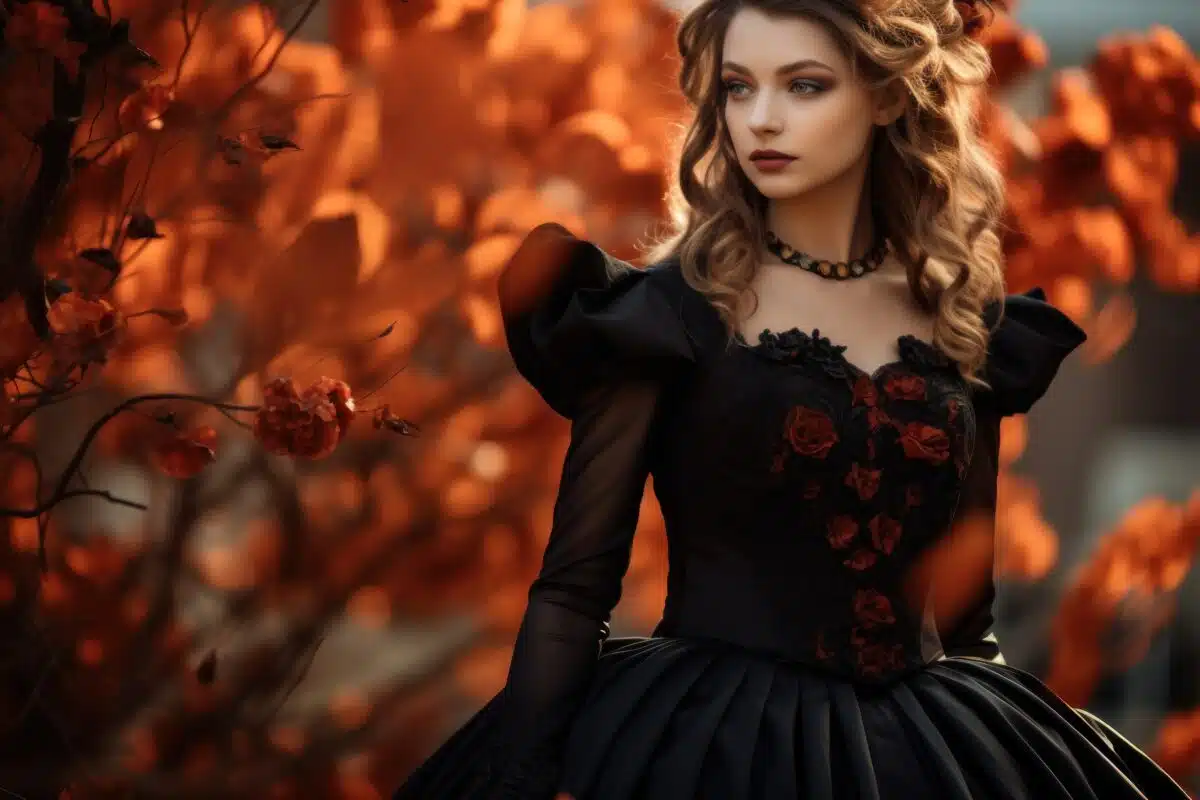
“Ashes Of Roses” by Elaine Goodale Eastman
Soft on the sunset sky
Bright daylight closes,
Leaving, when light doth die,
Pale hues that mingling lie,—
Ashes of roses.
When love’s warm sun is set,
Love’s brightness closes;
Eyes with hot tears are wet,
In hearts there linger yet
Ashes of roses.
“When You Are Old” by William Butler Yeats
When you are old and grey and full of sleep,
And nodding by the fire, take down this book,
And slowly read, and dream of the soft look
Your eyes had once, and of their shadows deep;
How many loved your moments of glad grace,
And loved your beauty with love false or true,
But one man loved the pilgrim soul in you,
And loved the sorrows of your changing face;
And bending down beside the glowing bars,
Murmur, a little sadly, how Love fled
And paced upon the mountains overhead
And hid his face amid a crowd of stars.
“Song” by Frances Anne Butler
Yet once again, but once, before we sever,
Fill we one brimming cup,—it is the last!
And let those lips, now parting, and for ever,
Breathe o’er this pledge, “the memory of the past!”
Joy’s fleeting sun is set; and no to-morrow
Smiles on the gloomy path we tread so fast,
Yet, in the bitter cup, o’erfilled with sorrow,
Lives one sweet drop,—the memory of the past.
But one more look from those dear eyes, now shining
Through their warm tears, their loveliest and their last;
But one more strain of hands, in friendship twining,
Now farewell all, save memory of the past.
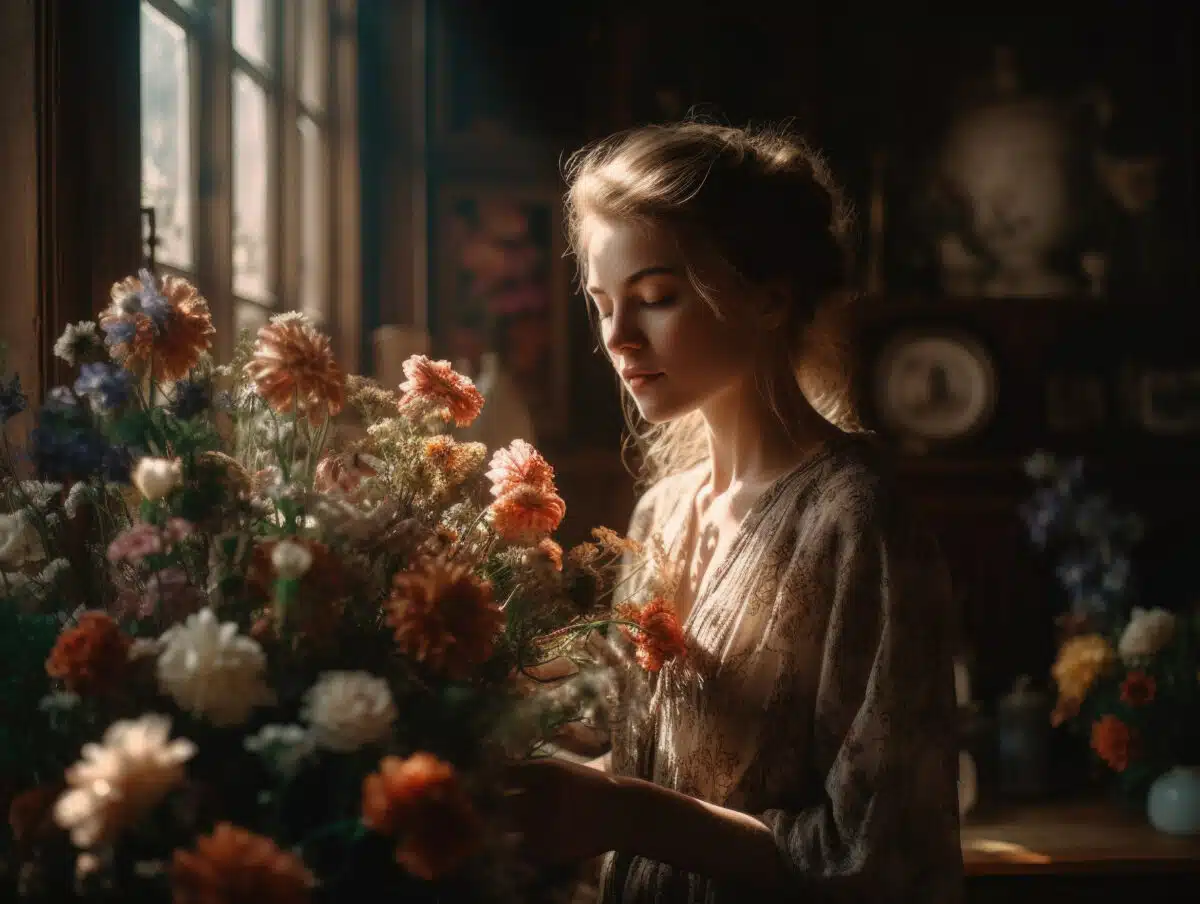
“Departure” by Coventry Patmore
It was not like your great and gracious ways!
Do you, that have nought other to lament,
Never, my Love, repent
Of how, that July afternoon,
You went,
With sudden, unintelligible phrase,
And frighten’d eye,
Upon your journey of so many days,
Without a single kiss, or a good-bye?
I knew, indeed, that you were parting soon;
And so we sate, within the low sun’s rays,
You whispering to me, for your voice was weak,
Your harrowing praise.
Well, it was well,
To hear you such things speak,
And I could tell
What made your eyes a growing gloom of love,
As a warm South-wind sombres a March grove.
And it was like your great and gracious ways
To turn your talk on daily things, my Dear,
Lifting the luminous, pathetic lash
To let the laughter flash,
Whilst I drew near,
Because you spoke so low that I could scarcely hear.
But all at once to leave me at the last,
More at the wonder than the loss aghast,
With huddled, unintelligible phrase,
And frighten’d eye,
And go your journey of all days
With not one kiss, or a good-bye,
And the only loveless look the look with which you pass’d:
’Twas all unlike your great and gracious ways.
“Apologetic Postscript of a Year Later” by Robert Louis Stevenson
If you see this song, my dear,
And last year’s toast,
I’m confoundedly in fear
You’ll be serious and severe
About the boast.
Blame not that I sought such aid
To cure regret.
I was then so lowly laid
I used all the Gasconnade
That I could get.
Being snubbed is somewhat smart,
Believe, my sweet;
And I needed all my art
To restore my broken heart
To its conceit.
Come and smile, dear, and forget
I boasted so,
I apologise—regret—
It was all a jest;—and—yet—
I do not know.
“Separation” from Song of Korea (E. Powys Mathers, Translator)
As water runs in the river, so runs time;
And ever my eyes are wasted of her presence.
The red flowers of the second moon were yesterday;
To-day the earth has spots of blood, and there are no flowers.
The wild geese were harnessed to the autumn moon;
They have come, I heard their crying, and they are gone.
They have passed and given me no message;
I only hear the falling, falling noise of white rain.

“Alone in Spring” by Caroline Giltinan
I never met the Spring alone before:
The flowers, birds, the loveliness of trees,
For with me always there was one I love—
And love is shield against such gifts as these.
But now I am alone, alone, alone;
The days and nights one long remembering.
Did other Aprils that we shared possess
The hurting beauty of this living Spring?
I never met the Spring alone before—
My starving grief—this radiance of gold!…
To be alone, when Spring is being born,
One should be dead—or suddenly grown old.
“Love And Loss” by Madison Julius Cawein
Loss molds our lives in many ways,
And fills our souls with guesses;
Upon our hearts sad hands it lays
Like some grave priest that blesses.
Far better than the love we win,
That earthly passions leaven,
Is love we lose, that knows no sin,
That points the path to Heaven.
Love, whose soft shadow brightens Earth,
Through whom our dreams are nearest;
And loss, through whom we see the worth
Of all that we held dearest.
Not joy it is, but misery
That chastens us, and sorrow;—
Perhaps to make us all that we
Expect beyond To-morrow.
Within that life where time and fate
Are not; that knows no seeming:
That world to which Death keeps the gate
Where Love and Loss sit dreaming.
“Pity Me Not” by Edna St. Vincent Millay
Pity me not because the light of day
At close of day no longer walks the sky;
Pity me not for beauties passed away
From field and thicket as the year goes by;
Pity me not the waning of the moon,
Nor that the ebbing tide goes out to sea,
Nor that a man’s desire is hushed so soon,
And you no longer look with love on me.
This have I known always: Love is no more
Than the wide blossom which the wind assails,
Than the great tide that treads the shifting shore.
Strewing fresh wreckage gathered in the gales;
Pity me that the heart is slow to learn

“When I Am Not With You” by Sara Teasdale
When I am not with you
I am alone,
For there is no one else
And there is nothing
That comforts me but you.
When you are gone
Suddenly I am sick,
Blackness is round me,
There is nothing left.
I have tried many things,
Music and cities,
Stars in their constellations
And the sea,
But there is nothing
That comforts me but you;
And my poor pride bows down
Like grass in a rain-storm
Drenched with my longing.
The night is unbearable,
Oh let me go to you
For there is no one,
There is nothing
To comfort me but you.
“I Have Loved Hours at Sea” by Sara Teasdale
I have loved hours at sea, gray cities,
The fragile secret of a flower,
Music, the making of a poem
That gave me heaven for an hour;
First stars above a snowy hill,
Voices of people kindly and wise,
And the great look of love, long hidden,
Found at last in meeting eyes.
I have loved much and been loved deeply—
Oh when my spirit’s fire burns low,
Leave me the darkness and the stillness,
I shall be tired and glad to go.
“Desertion” by Rupert Brooke
So light we were, so right we were, so fair faith shone,
And the way was laid so certainly, that, when I’d gone,
What dumb thing looked up at you? Was it something heard,
Or a sudden cry, that meekly and without a word
You broke the faith, and strangely, weakly, slipped apart.
You gave in — you, the proud of heart, unbowed of heart!
Was this, friend, the end of all that we could do?
And have you found the best for you, the rest for you?
Did you learn so suddenly (and I not by!)
Some whispered story, that stole the glory from the sky,
And ended all the splendid dream, and made you go
So dully from the fight we know, the light we know?
O faithless! the faith remains, and I must pass
Gay down the way, and on alone. Under the grass
You wait; the breeze moves in the trees, and stirs, and calls,
And covers you with white petals, with light petals.
There it shall crumble, frail and fair, under the sun,
O little heart, your brittle heart; till day be done,
And the shadows gather, falling light, and, white with dew,
Whisper, and weep; and creep to you. Good sleep to you!

“On the Dunes” by Sara Teasdale
If there is any life when death is over,
These tawny beaches will know much of me,
I shall come back, as constant and as changeful
As the unchanging, many-colored sea.
If life was small, if it has made me scornful,
Forgive me; I shall straighten like a flame
In the great calm of death, and if you want me
Stand on the sea-ward dunes and call my name.
“I said I splendidly loved you; it’s not true” by Rupert Brooke
I said I splendidly loved you; it’s not true.
Such long swift tides stir not a land-locked sea.
On gods or fools the high risk falls — on you —
The clean clear bitter-sweet that’s not for me.
Love soars from earth to ecstasies unwist.
Love is flung Lucifer-like from Heaven to Hell.
But — there are wanderers in the middle mist,
Who cry for shadows, clutch, and cannot tell
Whether they love at all, or, loving, whom:
An old song’s lady, a fool in fancy dress,
Or phantoms, or their own face on the gloom;
For love of Love, or from heart’s loneliness.
Pleasure’s not theirs, nor pain. They doubt, and sigh,
And do not love at all. Of these am I.
“A Channel Passage” by Rupert Brooke
The damned ship lurched and slithered. Quiet and quick
My cold gorge rose; the long sea rolled; I knew
I must think hard of something, or be sick;
And could think hard of only one thing — YOU!
You, you alone could hold my fancy ever!
And with you memories come, sharp pain, and dole.
Now there’s a choice — heartache or tortured liver!
A sea-sick body, or a you-sick soul!
Do I forget you? Retchings twist and tie me,
Old meat, good meals, brown gobbets, up I throw.
Do I remember? Acrid return and slimy,
The sobs and slobber of a last years woe.
And still the sick ship rolls. ‘Tis hard, I tell ye,
To choose ‘twixt love and nausea, heart and belly.

“Remembered” by Madison Julius Cawein
Here in the dusk I see her face again
As then I knew it, ere she fell asleep;
Renunciation glorifying pain
Of her soul’s inmost deep.
I shall not see its like again! the brow
Of passive marble, purely aureoled, –
As some pale lily in the afterglow, –
With supernatural gold.
As if a rose should speak and, somehow heard
By some strange sense, the unembodied sound
Grow visible, her mouth was as a word
A sweet thought falters ’round.
So do I still remember eyes imbued
With far reflections – as the stars suggest
The silence, purity and solitude
Of infinite peace and rest.
She was my all. I loved her as men love
A high desire, religion, an ideal –
The meaning purpose in the loss whereof
God shall alone reveal.
“Lines: We Meet Not As We Parted” by Percy Bysshe Shelley
We meet not as we parted,
We feel more than all may see;
My bosom is heavy-hearted,
And thine full of doubt for me:—
One moment has bound the free.
That moment is gone for ever,
Like lightning that flashed and died—
Like a snowflake upon the river—
Like a sunbeam upon the tide,
Which the dark shadows hide.
That moment from time was singled
As the first of a life of pain;
The cup of its joy was mingled
—Delusion too sweet though vain!
Too sweet to be mine again.
Sweet lips, could my heart have hidden
That its life was crushed by you,
Ye would not have then forbidden
The death which a heart so true
Sought in your briny dew.
Methinks too little cost
For a moment so found, so lost!
Poems About Breaking Up and Moving On for Him

Breaking up and moving on can be a tough yet transformative journey, filled with a mix of emotions and self-reflection.
In these heartfelt poems, we explore the rollercoaster of emotions that accompany saying goodbye and the empowering process of finding our true selves.
“Where Love Once Was” by James Oppenheim
Where love once was, let there be no hate:
Though they that went as one by night and day
Go now alone,
Where love once was, let there be no hate.
The seeds we planted together
Came to rich harvest,
And our hearts are as bins brimming with the golden plenty:
Into our loneliness we carry granaries of old love …
And though the time has come when we cannot sow our acres together,
And our souls need diverse fields,
And a tilling apart,
Let us go separate ways with a blessing each for each,
And gentle parting,
And let there be no hate,
Where love once was.
“Her Voice” by Oscar Wilde
The wild bee reels from bough to bough
With his furry coat and his gauzy wing.
Now in a lily-cup, and now
Setting a jacinth bell a-swing,
In his wandering;
Sit closer love: it was here I trow
I made that vow,
Swore that two lives should be like one
As long as the sea-gull loved the sea,
As long as the sunflower sought the sun,—
It shall be, I said, for eternity
‘Twixt you and me!
Dear friend, those times are over and done.
Love’s web is spun.
Look upward where the poplar trees
Sway in the summer air,
Here n the valley never a breeze
Scatters the thistledown, but there
Great winds blow fair
From the mighty murmuring mystical seas,
And the wave-lashed leas.
Look upward where the white gull screams,
What does it see that we do not see?
Is that a star? or the lamp that gleams
On some outward voyaging argosy,—
Ah! can it be
We have lived our lives in a land of dreams!
How sad it seems.
Sweet, there is nothing left to say
But this, that love is never lost,
Keen winter stabs the breasts of May
Whose crimson roses burst his frost,
Ships tempest-tossed
Will find a harbor in some bay,
And so we may.
And there is nothing left to do
But to kiss once again, and part,
Nay, there is nothing we should rue,
I have my beauty,—you your Art,
Nay, do not start,
One world was not enough for two
Like me and you.
“Think No More Of Me” by Wilfrid Scawen Blunt
Think no more of me,
If we needs must part.
Mine was but a heart.
Think no more of me.
Think no more of me.
For love’s sake forget.
Love grows hard which cannot see.
It may wound us yet.
Think no more of me.
Love has had his day.
Nowlove runs away.
Think no more of me.
Think no more of me.
If we loved or not
Hidden is ‘ twixt me and thee,
It were best forgot.
Think no more of me.
We shall need our tears
For the coming years.
Think no more of me.
Think no more of me.
In the world above
Sadder far it were if we
Met and did not love.
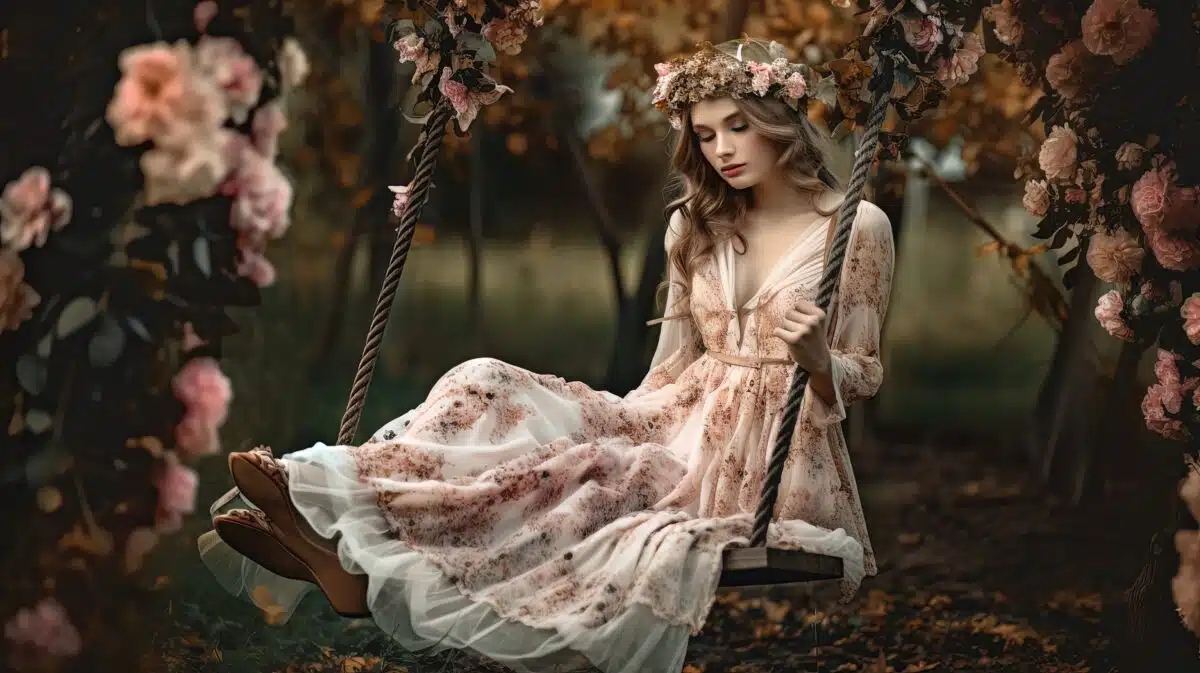
“The Rose” by Madison Julius Cawein
You have forgot: it once was red
With life, this rose, to which you said,—
When, there in happy days gone by,
You plucked it, on my breast to lie,—
“Sleep there, O rose! how sweet a bed
Is thine!—And, heart, be comforted;
For, though we part and roses shed
Their leaves and fade, love cannot die.—”
You have forgot.
So by those words of yours I’m led
To send it you this day you wed.
Look well upon it. You, as I,
Should ask it now, without a sigh,
If love can lie as it lies dead.—
You have forgot.
“The Eviction” by Wilfrid Scawen Blunt
Unruly tenant of my heart,
Full fain would I be quit of thee.
I’ve played too long a losing part,
Thou bringst me neither gold nor fee.
“Tis time thou shouldst thy holding yield,
Thy will and mine no longer meet,
With cockle hast thou sown my field,
With squanderings all the public street .
Thy presence doth disturb my pride,
Let me be owner of my own,
I fling thee with thy goods outside,
And bar re-entry with a stone.
Begone and hide thee from my face,
I will not see thee chiding there;
Away, to live in my disgrace!
Away, to die in thy despair!
O impotence of human wit!
The law is mine, the fault in thee,
And yet in vain I serve the writ,
In vain I scourge thee with decree.
For, lo, in stillness of the night,
O’erturning stone and guard and door,
Thou art come with thy lost tenant right
And hast possession as before.
“The Expiration” by John Donne
So—, so—, break off this last lamenting kiss,
Which sucks two souls, and vapours both away;
Turn, thou ghost, that way, and let me turn this,
And let ourselves benightour happiest day:
We ask’d none leave to love; nor will we owe
Any so cheap a death as saying, “Go.”
Go!—and if that word have not quite kill’d thee,
Ease me with death, by bidding me go too;
Or, if it have, let my word work on me,
And a just office on a murderer do;
Except it be too late, to kill me so,
Being double dead, going, and bidding go.

“Lost Love” by Alfred Lord Tennyson
I envy not in any moods
The captive void of noble rage,
The linnet born within the cage,
That never knew the summer woods;
I envy not the beast that takes
His license in the field of time,
Unfetter’d by the sense of crime,
To whom a conscience never wakes;
Nor, what may count itself as blest,
The heart that never plighted troth
But stagnates in the weeds of sloth;
Nor any want-begotten rest.
I hold it true, whate’er befall;
I feel it, when I sorrow most;
‘T is better to have loved and lost
Than never to have loved at all.
“You Will Not Come Again” by Dora Sigerson Shorter
The green has come to the leafless tree,
The earth brings forth its grain;
The rose has come for the honey bee:
You will not come again.
The birds have come to the empty nest,
All winter full of rain;
Music has come where the silence was:
You will not come again.
Love swift will come for the weak lambs’ cry;
Ah for my heart’s dull pain!
Lone in the cycle of change am I:
You will not come again.
“Proud of my broken heart since thou didst break it” by Emily Dickinson
Proud of my broken heart since thou didst break it,
Proud of the pain I did not feel till thee,
Proud of my night since thou with moons dost slake it,
Not to partake thy passion, my humility.

“To—” by Frances Anne Butler
When we first met, dark wintry skies were glooming,
And the wild winds sang requiem to the year;
But thou, in all thy beauty’s pride wert blooming,
And my young heart knew hope without a fear.
When we last parted, summer suns were smiling,
And the bright earth her flowery vesture wore;
But thou hadst lost the power of beguiling,
For my wrecked, wearied heart, could hope no more.
“Let Us Forget” by James Whitcomb Riley
Let us forget. What matters it that we
Once reigned o’er happy realms of long-ago,
And talked of love, and let our voices low,
And ruled for some brief sessions royally?
What if we sung, or laughed, or wept maybe?
It has availed not anything, and so
Let it go by that we may better know
How poor a thing is lost to you and me.
But yesterday I kissed your lips, and yet
Did thrill you not enough to shake the dew
From your drenched lids—and missed, with no regret,
Your kiss shot back, with sharp breaths failing you:
And so, to-day, while our worn eyes are wet
With all this waste of tears, let us forget!
“Spring Song” by Robert Louis Stevenson
The air was full of sun and birds,
The fresh air sparkled clearly.
Remembrance wakened in my heart
And I knew I loved her dearly.
The fallows and the leafless trees
And all my spirit tingled.
My earliest thought of love, and Spring’s
First puff of perfume mingled.
In my still heart the thoughts awoke,
Came lone by lone together—
Say, birds and Sun and Spring, is Love
A mere affair of weather?
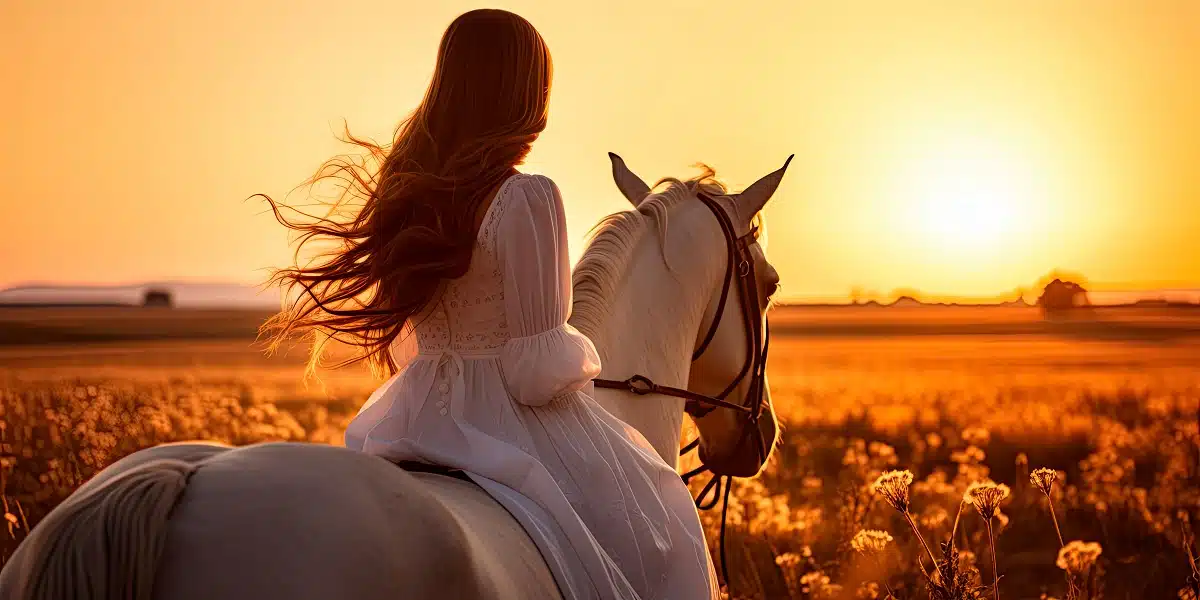
“Let Love Go, If Go She Will” by Robert Louis Stevenson
Let love go, if go she will.
Seek not, O fool, her wanton flight to stay.
Of all she gives and takes away
The best remains behind her still.
The best remains behind; in vain
Joy she may give and take again,
Joy she may take and leave us pain,
If yet she leave behind
The constant mind
To meet all fortunes nobly, to endure
All things with a good heart, and still be pure,
Still to be foremost in the foremost cause,
And still be worthy of the love that was.
Love coming is omnipotent indeed,
But not Love going. Let her go. The seed
Springs in the favouring Summer air, and grows,
And waxes strong; and when the Summer goes,
Remains, a perfect tree.
Joy she may give and take again,
Joy she may take and leave us pain.
O Love, and what care we?
For one thing thou hast given, O Love, one thing
Is ours that nothing can remove;
And as the King discrowned is still a King,
The unhappy lover still preserves his love.
“Yes Thou Art Gone” by Anne Brontë
Yes, thou art gone! and never more
Thy sunny smile shall gladden me;
But I may pass the old church door,
And pace the floor that covers thee,
May stand upon the cold, damp stone,
And think that, frozen, lies below
The lightest heart that I have known,
The kindest I shall ever know.
Yet, though I cannot see thee more,
‘Tis still a comfort to have seen;
And though thy transient life is o’er,
‘Tis sweet to think that thou hast been;
To think a soul so near divine,
Within a form, so angel fair,
United to a heart like thine,
Has gladdened once our humble sphere.
“When All Is Done” by Paul Laurence Dunbar
When all is done, and my last word is said,
And ye who loved me murmur, “He is dead,”
Let no one weep, for fear that I should know,
And sorrow too that ye should sorrow so.
When all is done and in the oozing clay,
Ye lay this cast-off hull of mine away,
Pray not for me, for, after long despair,
The quiet of the grave will be a prayer.
For I have suffered loss and grievous pain,
The hurts of hatred and the world’s disdain,
And wounds so deep that love, well-tried and pure,
Had not the pow’r to ease them or to cure.
When all is done, say not my day is o’er,
And that thro’ night I seek a dimmer shore:
Say rather that my morn has just begun,–
I greet the dawn and not a setting sun,
When all is done.

“To—” by Frances Anne Butler
When the glad sun looks smiling from the sky,
Upon each shadowy glen and woody height,
And that you tread those well known paths where I
Have stray’d with you,—do not forget me quite.
When the warm hearth throws its bright glow around,
On many a smiling cheek, and glance of light,
And the gay laugh wakes with its joyous sound
The soul of mirth,—do not forget me quite.
You will not miss me; for with you remain
Hearts fond and warm, and spirits young and bright,
’Tis but one word—“farewell;” and all again
Will seem the same,—yet don’t forget me quite.
“Let It Be Forgotten” by Sara Teasdale
Let it be forgotten, as a flower is forgotten,
Forgotten as a fire that once was singing gold,
Let it be forgotten for ever and ever,
Time is a kind friend, he will make us old.
If anyone asks, say it was forgotten
Long and long ago,
As a flower, as a fire, as a hushed footfall
In a long forgotten snow.
Goodbye Breakup Poems for Him
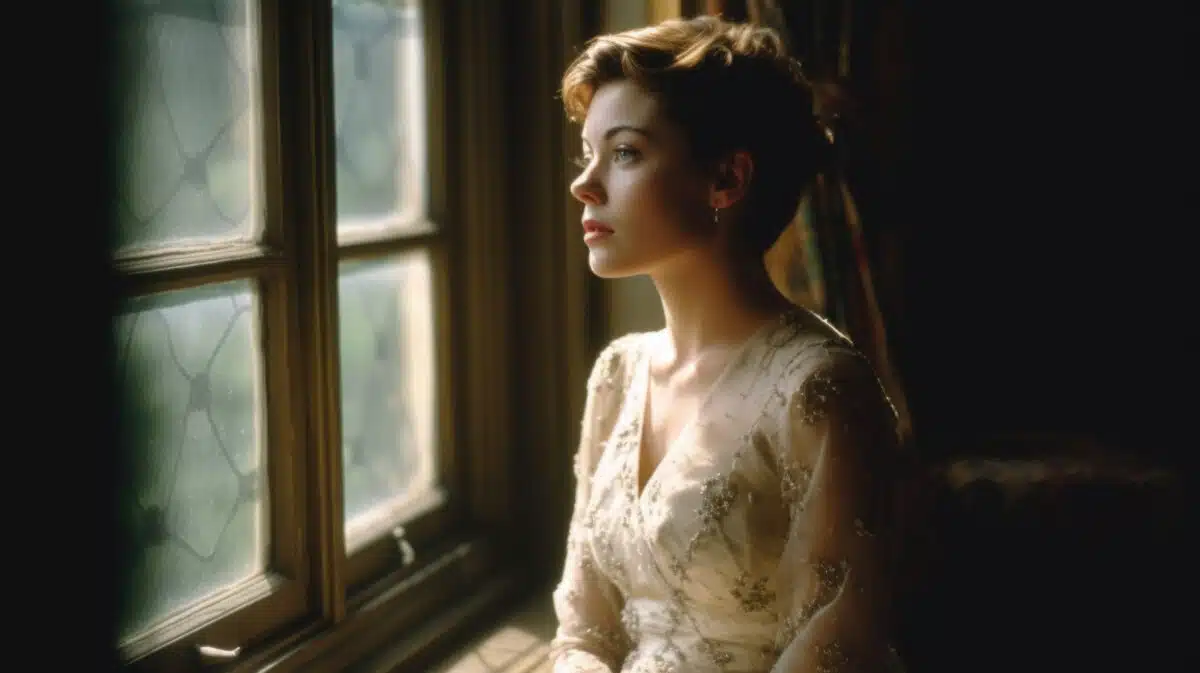
Saying our last goodbye to someone we care about is undoubtedly one of the toughest things in life.
But fear not, because these wonderful poems offer comfort and empathy to all those who have experienced the painful journey of saying goodbye.
“Fare Thee Well, Thou Lovely One!” by Thomas Moore
Fare thee well, thou lovely one!
Lovely still, but dear no more;
Once his soul of truth is gone,
Love’s sweet life is o’er.
Thy words, what e’er their flattering spell,
Could scarce have thus deceived;
But eyes that acted truth so well
Were sure to be believed.
Then, fare thee well, thou lovely one!
Lovely still, but dear no more;
Once his soul of truth is gone,
Love’s sweet life is o’er.
Yet those eyes look constant still,
True as stars they keep their light;
Still those cheeks their pledge fulfil
Of blushing always bright.
‘Tis only on thy changeful heart
The blame of falsehood lies;
Love lives in every other part,
But there, alas! he dies.
Then, fare thee well, thou lovely one!
Lovely still, but dear no more;
Once his soul of truth is gone,
Love’s sweet life is o’er.
“Thou And I” by Henry Dryerre
When thou and I
Fall out—good-bye!
Without a doubt
That tear and sigh And scornful pout
Shall in the morning be forgot,
And longing fill each vacant thought.
Inquirest why?
‘Tis thou and I!
For thou and I
May pale and sigh,
And part in pain,
Yet, love will cry
To meet again.
More, more than words, yea, thoughts are we,
Deeper than all we know and see
Are thou and I
Who say good-bye.
So, thou and I
May moan and sigh,
And part in pain,
Nor know the why
We kiss again:
We only know ’tis love, my dear,
And love is sweeter for each tear
Yea, for each sigh
And sad good-bye.
“Ae Fond Kiss” by Robert Burns
Ae fond kiss, and then we sever;
Ae fareweel, alas! forever!
Deep in heart-wrung tears I’ll pledge thee,
Warring sighs and groans I’ll wage thee.
Who shall say that fortune grieves him,
While the star of hope she leaves him?
Me, nae cheerfu’ twinkle lights me;
Dark despair around benights me.
I’ll ne’er blame my partial fancy,
Naething could resist my Nancy;
But to see her was to love her;
Love but her and love forever.
Had we never loved sae kindly,
Had we never loved sae blindly,
Never met – or never parted,
We had ne’er been broken-hearted.
Fare-thee-weel, thou first and fairest!
Fare-thee-weel, thou best and dearest!
Thine be ilka joy and treasure,
Peace, enjoyment, love, and pleasure!
Ae fond kiss, and then we sever;
Ae fareweel, alas! forever!
Deep in heart-wrung tears I’ll pledge thee,
Warring sighs and groans I’ll wage thee.

“Fare Thee Well” by John Clare
Here’s a sad good bye for thee, my love,
To friends and foes a smile:
I leave but one regret behind,
That’s left with thee the while,
But hopes that fortune is our friend
Already pays the toil.
Force bids me go, your friends to please.
Would they were not so high!
But be my lot on land or seas,
It matters not where by,
For I shall keep a thought for thee,
In my heart’s core to lie.
Winter shall lose its frost and snow,
The spring its blossomed thorn,
The summer all its bloom forego,
The autumn hound and horn
Ere I will lose that thought of thee,
Or ever prove forsworn.
The dove shall change a hawk in kind,
The cuckoo change its tune,
The nightingale at Christmas sing,
The fieldfare come in June–
Ere I do change my love for thee
These things shall change as soon.
So keep your heart at ease, my love,
Nor waste a joy for me:
I’ll ne’er prove false to thee, my love,
Till fish drown in the sea,
And birds forget to fly, my love,
And then I’ll think of thee.
The red cock’s wing may turn to grey,
The crow’s to silver white,
The night itself may be for day,
And sunshine wake at night:
Till then–and then I’ll prove more true
Than Nature, life, and light.
Though you may break your fondest vow,
And take your heart from me,
And though my heart should break to hear
What I may never see,
Yet never can’st thou break the link
That binds my love to thee.
So fare-thee-well, my own true love;
No vow from thee I crave,
But thee I never will forego,
Till no spark of life I have,
Nor will I ever thee forget
Till we both lie in the grave.
“Adieu” by Thomas Carlyle
Let time and chance combine, combine,
Let time and chance combine;
The fairest love from heaven above,
That love of yours was mine,
My dear,
That love of yours was mine.
The past is fled and gone, and gone,
The past is fled and gone;
If nought but pain to me remain,
I’ll fare in memory on,
My dear,
I’ll fare in memory on.
The saddest tears must fall, must fall,
The saddest tears must fall;
In weal or woe, in this world below,
I love you ever and all,
My dear,
I love you ever and all.
A long road full of pain, of pain,
A long road full of pain;
One soul, one heart, sworn ne’er to part,—
We ne’er can meet again,
My dear,
We ne’er can meet again.
Hard fate will not allow, allow,
Hard fate will not allow;
We blessed were as the angels are,—
Adieu forever now,
My dear,
Adieu forever now.
“Farewell!—But Whenever” by Thomas Moore
Farewell!—but whenever you welcome the hour
That awakens the night-song of mirth in your bower,
Then think of the friend that once welcomed it too,
And forgot his own griefs, to be happy with you.
His griefs may return—not a hope may remain
Of the few that have brightened his pathway of pain—
But he ne’er can forget the short vision that threw
Its enchantment around him while lingering with you!
And still on that evening when Pleasure fills up
To the highest top sparkle each heart and each cup,
Where’er my path lies, be it gloomy or bright,
My soul, happy friends! will be with you that night;
Shall join in your revels, your sports, and your wiles,
And return to me, beaming all o’er with your smiles—
Too blest if it tell me that, ’mid the gay cheer,
Some kind voice has murmured, “I wish he were here!”
Let Fate do her worst, there are relics of joy,
Bright dreams of the past, which she cannot destroy;
Which come in the night-time of sorrow and care,
And bring back the features which joy used to wear.
Long, long be my heart with such memories filled!
Like the vase in which roses have once been distilled—
You may break, you may shatter the vase, if you will,
But the scent of the roses will hang round it still.

“Farewell to Love” by Samuel Taylor Coleridge
Farewell, sweet Love! yet blame you not my truth:
More fondly ne’er did mother eye her child
Than I your form. Yours were my hopes of youth,
And as you shaped my thoughts, I sighed or smiled.
While most were wooing wealth, or gayly swerving
To pleasure’s secret haunts, and some apart
Stood strong in pride, self-conscious of deserving,
To you I gave my whole, weak, wishing heart.
And when I met the maid that realized
Your fair creations, and had won her kindness,
Say but for her if aught in earth I prized!
Your dream alone I dreamt, and caught your blindness.
O grief!—but farewell, Love! I will go play me
With thoughts that please me less, and less betray me.
“The Parting” by Frances Anne Butler
‘Twas a fit hour for parting,
For athwart the leaden sky
The heavy clouds came gathering
And sailing gloomily:
The earth was drunk with heaven’s tears,
And each moaning autumn breeze
Shook the burthen of its weeping
Off the overladen trees.
The waterfall rushed swollen down,
In the gloaming, still and gray;
With a foam-wreath on the angry brow
Of each wave that flashed away.
My tears were mingling with the rain,
That fell so cold and fast,
And my spirit felt thy low deep sigh
Through the wild and roaring blast.
The beauty of the summer woods
Lay rustling round our feet,
And all fair things had passed away—
’Twas an hour for parting meet.
“A Farewell” by Frances Anne Butler
I shall come no more to the Cedar Hall,
The fairies’ palace beside the stream;
Where the yellow sun-rays at morning fall
Through their tresses dark, with a mellow gleam.
I shall tread no more the thick dewy lawn,
When the young moon hangs on the brow of night,
Nor see the morning, at early dawn,
Shake the fading stars from her robes of light.
I shall fly no more on my fiery steed,
O’er the springing sward,—through the twilight wood;
Nor reign my courser, and check my speed,
By the lonely grange, and the haunted flood.
At fragrant noon, I shall lie no more
’Neath the oak’s broad shade, in the leafy dell:
The sun is set,—the day is o’er,—
The summer is past;—farewell!—farewell!
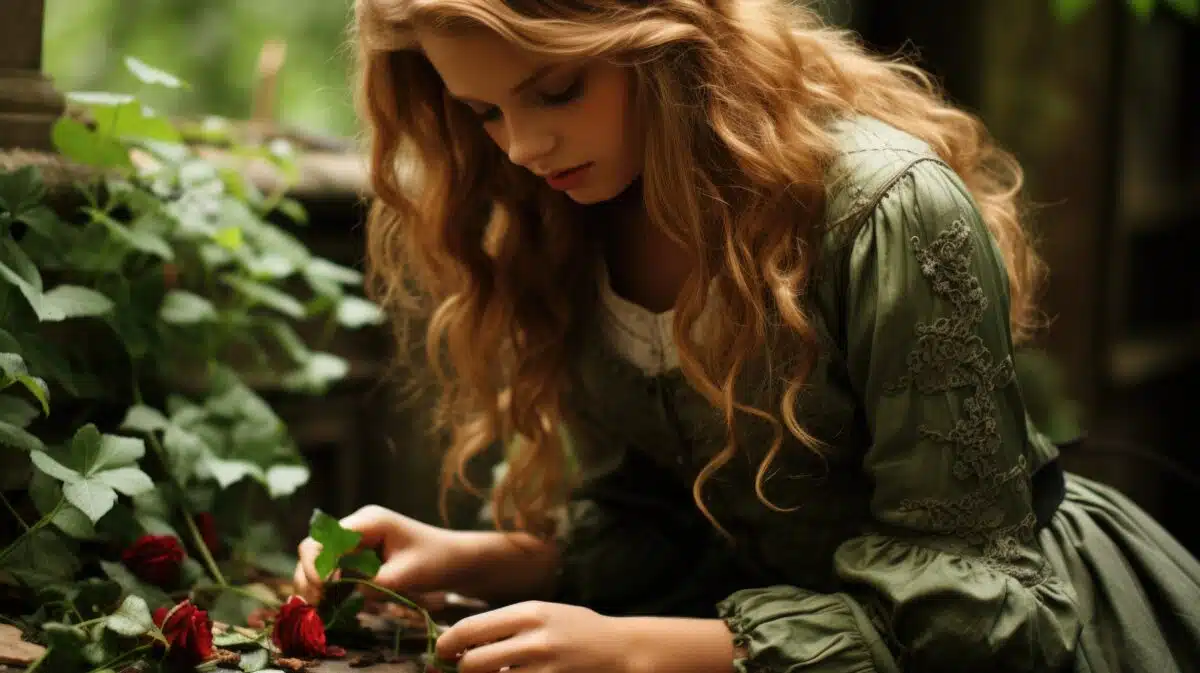
“We Part For Ever” by George Pope Morris
Fare thee well–we part for ever!
All regrets are now in vain!
Fate decrees that we must sever,
Ne’er to meet on earth again.
Other skies may bend above thee,
Other hearts may seek thy shrine,
But no other e’er will love thee
With the constancy of mine.
Yet farewell–we part for ever!
All regrets are now in vain!
Fate decrees that we must sever,
Ne’er to meet on earth again.
Fare thee well!
Like the shadow on the dial
Lingers still our parting kiss!
Life has no severer trial,
Death no pang to equal this.
All the world is now before thee,
Every clime to roam at will,
But within the land that bore thee,
One fond heart will love thee still.
Yet farewell–we part for ever!
All regrets are now in vain!
Fate decrees that we must sever,
Ne’er to meet on earth again.
Fare thee well!
“A Guinevere” by Madison Julius Cawein
Sullen gold down all the sky;
Roses and their sultry musk;
Whippoorwills deep in the dusk
Yonder sob and sigh.—
You are here; and I could weep,
Weep for joy and suffering….
“Where is he”?—He’d have me sing—
There he sits, asleep.
Think not of him! he is dead
For the moment to us twain—
Hold me in your arms again,
Rest on mine your head.
“Am I happy?” ask the fire
When it bursts its bounds and thrills
Some mad hours as it wills
If those hours tire.
He had gold. As for the rest—
Well you know how they were set,
Saying that I must forget
And ’twas for the best.
I forget?—But let it go!—
Kiss me as you used of old.
There; your kisses are not cold!
Can you love me so?
Knowing what I am to him,
To that gouty gray one there,
On the wide verandah, where
Fitful fireflies swim.
Is it tears? or what? that wets
Eyes and cheeks;—on brow and lip
Kisses! soft as bees that sip
Sweets from violets.
See! the moon has risen; white
As this open lily here,
Rocking on the dusky mere,
Like a silent light.
Let us walk… So soon to part!—
All too soon! But he may miss.
Give me but another kiss—
It will heat my heart
And the bitter winter there.—
So; we part, my Launcelot,
My true knight! and am I not
Your true Guinevere?
Oft they parted thus, they tell,
In that mystical romance…
Were they placed, think you, perchance,
For such love, in Hell?
No! it can not, can not be!
Love is God, and God is love:
And they live and love above,
Guinevere and he.
I must go now.—See! there fell,
Molten into purple light,
One wild star. Kiss me good night,
And once more. Farewell.
“The Death Of Lovers” by Charles Baudelaire
There shall be couches whence faint odours rise,
Divans like sepulchres, deep and profound;
Strange flowers that bloomed beneath diviner skies
The death-bed of our love shall breathe around.
And guarding their last embers till the end,
Our hearts shall be the torches of the shrine,
And their two leaping flames shall fade and blend
In the twin mirrors of your soul and mine.
And through the eve of rose and mystic blue
A beam of love shall pass from me to you,
Like a long sigh charged with a last farewell;
And later still an angel, flinging wide
The gates, shall bring to life with joyful spell
The tarnished mirrors and the flames that died.

“Behold The Hour” by Robert Burns
I.
Behold the hour, the boat arrive;
Thou goest, thou darling of my heart!
Sever’d from thee can I survive?
But fate has will’d, and we must part.
I’ll often greet this surging swell,
Yon distant isle will often hail:
“E’en here I took the last farewell ;
There, latest mark’d her vanish’d sail.”
II.
Along the solitary shore
While flitting sea-fowl round me cry,
Across the rolling, dashing roar,
I’ll westward turn my wistful eye:
Happy, thou Indian grove, I’ll say,
Where now my Nancy’s path may be!
While thro’ thy sweets she loves to stray,
O tell me, does she muse on me?
“Gloomy December” by Robert Burns
I.
Ance mair I hail thee, thou gloomy December!
Ance mair I hail thee wi’ sorrow and care:
Sad was the parting thou makes me remember,
Parting wi’ Nancy, oh! ne’er to meet mair.
Fond lovers’ parting is sweet painful pleasure,
Hope beaming mild on the soft parting hour;
But the dire feeling, O farewell for ever!
Is anguish unmingled, and agony pure.
II.
Wild as the winter now tearing the forest,
‘Till the last leaf o’ the summer is flown,
Such is the tempest has shaken my bosom,
Since my last hope and last comfort is gone!
Still as I hail thee, thou gloomy December,
Still shall I hail thee wi’ sorrow and care ;
For sad was the parting thou makes me remember,
Parting wi’ Nancy, oh! ne’er to meet mair.
